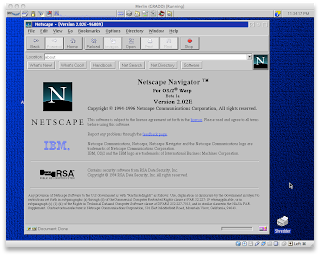In 1995, Clifford Stoll, an astronomer who had two decades of experience working on the Internet before most of us knew how to use it, wrote a piece for Newsweek in which he predicted that the increasingly popular visions of an “information superhighway” were a sham.
Cyber Monday, which didn’t exist in ‘95, seems like a good time to take a look back at what he wrote.
His column (first unearthed in recent years by a blogger in 2010) came on the heels of Stoll’s book, “Silicon Snake Oil” in which he similarly argued that the Internet was a “wasteland of unfiltered data” that would never make an impact on everyday life.
“The truth (is) no online database will replace your daily newspaper, no CD-ROM can take the place of a competent teacher and no computer network will change the way government works,” he confidently declared in the column, which bore this headline: “Why Web won’t be nirvana.”At the time, Stoll had some reasonable anecdotes to make his case. On the subject of cyberbusiness, he wrote:
“We're promised instant catalog shopping—just point and click for great deals. We'll order airline tickets over the network, make restaurant reservations and negotiate sales contracts. Stores will become obsolete. So how come my local mall does more business in an afternoon than the entire Internet handles in a month?”He also tried to downplay the idea that the Web would change politics and open up opaque government with another anecdote, this one based on the local elections in his community:
“Won't the Internet be useful in governing? Internet addicts clamor for government reports. But when Andy Spano ran for county executive in Westchester County, N.Y., he put every press release and position paper onto (an online) bulletin board. In that affluent county, with plenty of computer companies, how many voters logged in? Fewer than 30. Not a good omen.”As for predictions that computers will soon be in every classroom, Stoll brushed that claim aside with this retrograde response:
“These expensive toys are difficult to use in classrooms and require extensive teacher training. Sure, kids love videogames—but think of your own experience: can you recall even one educational filmstrip of decades past?”And then Newsweek readers were warned by Stoll, an author and writer, not to believe all that nonsense about the populace getting their reading material in the future from cyberspace:
“Try reading a book on disc. At best, it's an unpleasant chore: the myopic glow of a clunky computer replaces the friendly pages of a book. And you can't tote that laptop to the beach. Yet Nicholas Negroponte, director of the MIT Media Lab, predicts that we'll soon buy books and newspapers straight over the Internet. Uh, sure.”Well, he was partially right about that one. People in the future wouldn’t buy newspapers over the Internet, the media companies would foolishly give away their content for free and then, 15 years later, frantically scramble in an attempt to put the genie back in the bottle.
The iconic Newsweek, it should be noted, stopped printing after 80 years in December 2012 and switched to an online-only version of the magazine.


0 comments:
Post a Comment